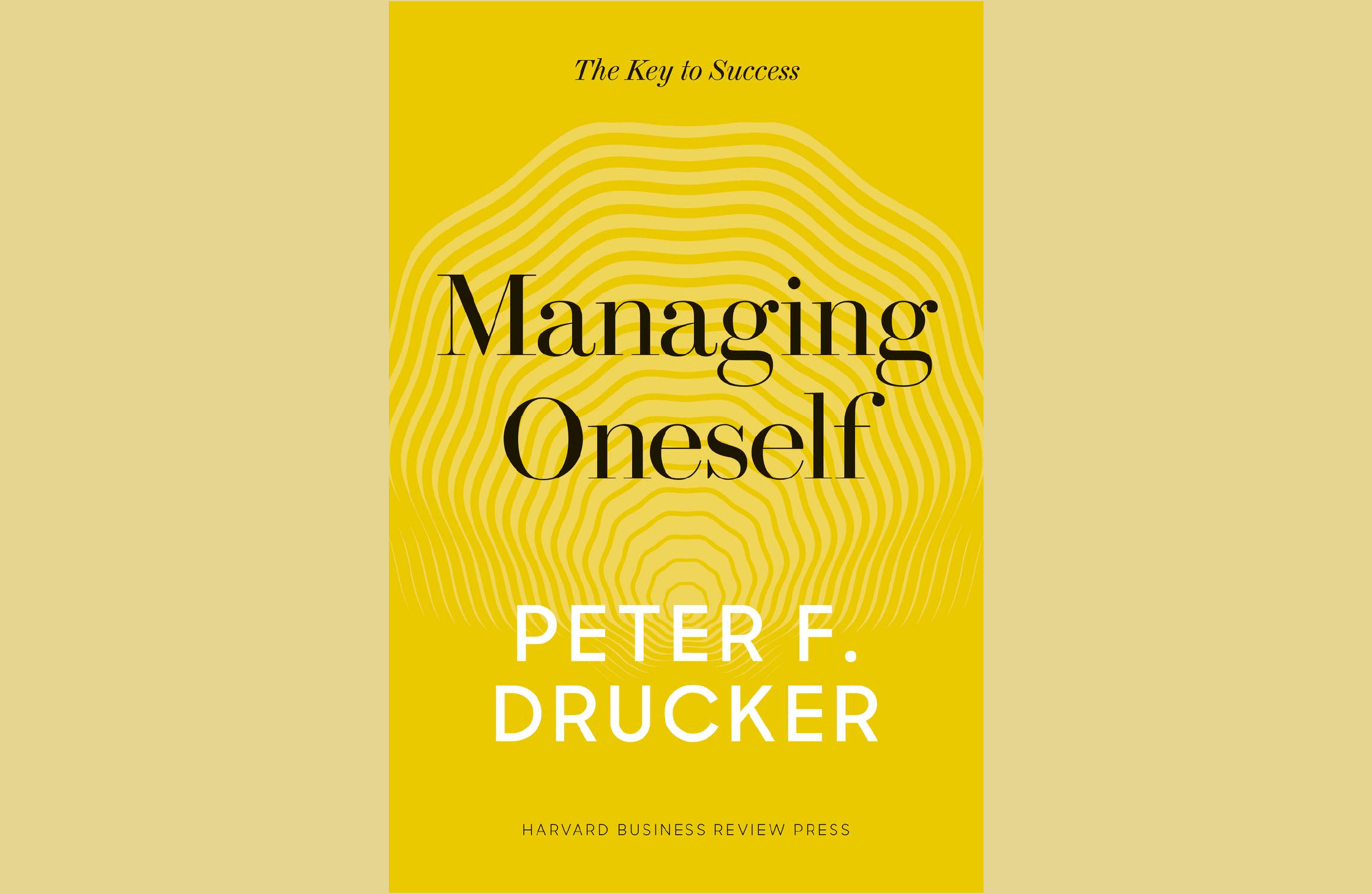Summary: "Managing Oneself" by Peter Drucker

"Managing Oneself" by Peter Drucker is a classic in personal and professional development. It offers a treasure trove of wisdom and insights that resonate with readers seeking to enhance their effectiveness in today's fast-paced world. Drucker's book is a collection of concise essays that distill fundamental principles of self-management, emphasizing the significance of self-awareness, recognizing and leveraging strengths, taking responsibility for one's actions, seeking feedback, building relationships, and adapting to change. Let's delve deeper into these core ideas through paragraphs enriched with quotes from the book.
Understanding Oneself:
At the heart of Drucker's philosophy is that success in the knowledge economy hinges on our ability to know ourselves intimately. "Success in the knowledge economy comes to those who know themselves – their strengths, their values, and how they best perform," he states. Drucker makes a compelling case for embracing the role of CEO in one's own life, advocating for continuous self-improvement and personal growth. This foundational concept underscores the importance of self-awareness and self-management as essential tools for navigating the complexities of modern work and life.
Identifying Strengths:
Drucker challenges the conventional wisdom of focusing on shoring up weaknesses, instead urging individuals to harness and amplify their strengths. "It takes far more energy and work to improve from incompetence to mediocrity than it takes to improve from first-rate performance to excellence," he wisely observes. This shift in perspective encourages a more productive and fulfilling approach to personal development, where individuals maximize their unique talents and capabilities, ultimately leading to more tremendous success and satisfaction.
Managing Time:
Drucker's insights on time management are particularly pertinent in a world perpetually plagued by time constraints. He reminds us that "time is the scarcest resource" and that effective self-management hinges on our ability to allocate our time to activities that align with our strengths and goals. Drucker advocates for a disciplined approach to prioritization, emphasizing the importance of focusing on "first things first" and tackling one task at a time.
Taking Responsibility:
Drucker places a significant emphasis on personal responsibility. He suggests that individuals should rigorously document their decisions, expectations, and accountabilities. "A decision has not been made until people know who is accountable for carrying it out," he asserts. This principle encourages proactive ownership of one's actions and decisions, fostering a culture of accountability and clarity in both personal and professional spheres.
Building on Strengths:
One of Drucker's most enduring pieces of advice is to build on one's strengths. He encourages individuals to stand out rather than fit in. "The most successful people don't fit in; they stand out," he wisely notes. This perspective is a call to action for readers to embrace their uniqueness and seek opportunities that allow them to leverage their strengths fully, ultimately leading to a more impactful and fulfilling life.
Feedback and Learning:
Drucker places a high premium on feedback and continuous learning. He introduces the concept of feedback analysis, which involves comparing expected outcomes with actual results. This practice fosters self-awareness and a continuous improvement mindset. "The only way to discover your strengths is through feedback analysis," Drucker states, underlining the importance of seeking feedback to fine-tune one's approach to personal and professional growth.
Relationships and Teamwork:
Drucker's insights extend beyond individual self-management to relationships and teamwork. He emphasizes the significance of leaders putting the team's collective success above personal achievements. "The most successful leaders are those most attuned to their followers," he notes. This approach fosters collaboration, trust, and synergy within teams, ultimately leading to more significant achievements.
Taking Action:
Drucker's philosophy is action-oriented. He stresses the importance of decisive action and its role in shaping one's future. "The best way to predict the future is to create it," he urges. This call to action is a reminder that taking initiative and making courageous decisions are essential steps to personal and professional success.
Adapting to Change:
Change is an ever-present force, and Drucker recognizes this reality. He encourages individuals to embrace change and innovation actively. "Innovation is the specific function of entrepreneurship," he asserts. This perspective highlights the need to be adaptable and forward-thinking in a rapidly evolving world.
Managing Your Career:
Drucker leaves readers with a crucial message regarding career management: it is the individual's responsibility. "It's up to you to manage your career. If you don't, no one else will," he admonishes. This empowering insight underscores the importance of taking control of one's professional destiny and continually seeking opportunities for growth and advancement.
In conclusion, "Managing Oneself" by Peter Drucker is a timeless guide to personal and professional effectiveness. Drucker's wisdom is distilled into insightful essays encouraging readers to embark on self-discovery, self-improvement, and self-mastery. His emphasis on self-awareness, strengths-based approaches, personal responsibility, feedback, and adaptability resonates with individuals striving to excel in their careers and lead fulfilling lives. This book continues to serve as a beacon for those committed to achieving their fullest potential and making a meaningful impact on the world.
